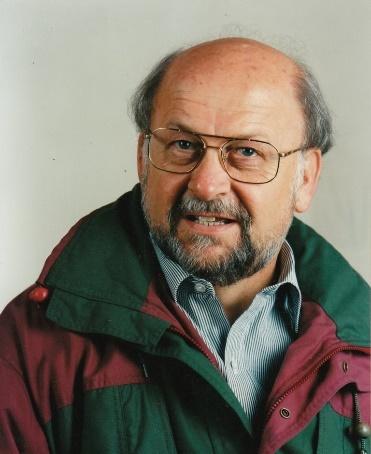Daniel Comboni
Comboni Missionaries
Institutional area
Other links
Newsletter
In Pace Christi
Knapp Josef Valentin
Fr. Josef was born at Falzes in Val Pusteria/Alto Adige on 14 February 1941, the eighth of twelve children. The brotherhood he lived and experienced as a child became his life-long characteristic.
At the age of eleven, Josef entered the missionary seminary of the Comboni Missionaries at Milland, close to Bressanone, for junior school and went to the diocesan minor seminary for high school. After his final exams in 1961, he began the novitiate in Mellatz (Germany). On 14 October 1962 he took temporary vows and moved to Bressanone for philosophical and theological studies in the diocesan major seminary. On 6 January 1966, he took final vows and, on 29 June 1966, he was ordained priest by Bishop Josef Gargitter of Bolzano-Bressanone. While waiting for a visa for South Africa, he filled the post of local bursar in the Milland community.
At long last, in 1968, he was able to leave for the mission. All through the thirty-two years he spent as a missionary, Fr. Josef kept in close contact with his family and his native country. For him, to be a missionary meant a continual learning process; he loved to communicate and was convinced of the need to keep up to date. For this reason, after fourteen years working in the missions of Luckau, Burgersfort and Glen Cowie, he frequented various courses at the Amecea Pastoral Institute, also known as the Gaba Pastoral Institute, from January to October 1982. In general, the post-conciliar period which includes the first phase of Fr. Josef’s missionary work, was a time of “going out”. Like many other local missionaries and Christians, Fr. Josef collaborated with Lumko Pastoral Institute. The fruits of that post-conciliar ‘going out’ were the Small Christian Communities, Biblical Apostolate, printed material for the various ecclesial services and the Pastoral Plan of the Catholic Church in South Africa: “Community Serving Humanity” (1989), which underlined the social dimension of the mission.
In 1986, the new bishop of the diocese of Witbank, Mgr. Paul Mogale Nkhumishe, appointed Fr. Josef as Director of the Pastoral Centre of “Maria Trost”, Lydenburg. As Director of the Centre, he accompanied the formation courses for deacons, catechists and other ecclesial services. At the same time, he ministered to the two parishes in Lydenburg, one for Africans and the other for whites. It was still the time of apartheid. He restored the old church of the mission, the first ‘cathedral’ of the Apostolic Vicariate. Bishop Nkhumishe appointed him Secretary and Administrator of the Diocese of Whitbank, thus showing how much confidence he had in him.
For the years 1993-1994 Fr. Josef was a member of the DSP. Before returning to South Africa in 1995, he completed a renewal course at the “Recollectio-Haus” in the Benedictine monastery of Münsterschwarzach (Germany).
With his return to South Africa, he began a new phase in his missionary life. He started working in the Archdiocese of Pretoria taking on the mission of St. Joseph in Dennilton, a rural area of ten communities with various schools, helped by six pastoral collaborators and eighteen part-time catechists.
On 1 July 2003, Fr. Josef was assigned definitively to his original province (DSP) but he continued to build bridges between the people of South Africa and those of his own country and to maintain contacts between Africa and Europe, which he believed should be a reciprocal commitment. The visits of South African parish choirs to Europe were unforgettable. For example, the choir called Ubuntu, a word meaning “humanity, friendship and cordiality” in the Zulu language, arrived in September 2011 and presented the story of South Africa in four acts: its origins, the period of oppression, the struggle for liberation (with Nelson Mandela) and the first democratic elections in 1994.
The organisation of those tours, which always had the purpose of promoting social projects (helping schools for nurses, old-peoples’ homes, the training of pastoral agents), required much time, energy, collaboration and economic resources. With the help of the local government of the autonomous province of Bolzano, of many friends, benefactors, relatives and confreres, the journeys, meetings and public shows by the choirs produced remarkable results for all involved.
From 2004 until his death, Fr. Josef was administrator of the two small parishes of Ponte Gardena and Kollmann, situated a few kilometres from Bressanone. As parish priest he lived in a simple apartment at the primary school in Waidbruck. He never put himself forward but neither did he hesitate to challenge people as he did when it was a matter of resolving conflict in the community through reconciliation. He proclaimed the Word of God in simple language, celebrating the liturgy creatively and leaving ample space for the people to participate. Unfortunately, his last trip to South Africa had undermined his health. After a week in intensive care at Bolzano hospital, he died on 12 January 2019.
The liturgical farewell celebrations at Kollmann and Ponte Gardena, the funeral at his home town of Falzes, presided by the diocesan Bishop Mgr. Ivo Muser and the large attendance were a clear sign of the esteem and affection the people had for their pastor and friend. He was buried in the cemetery of his home parish of Falzes.
(Fr. Hans Maneschg mccj).

